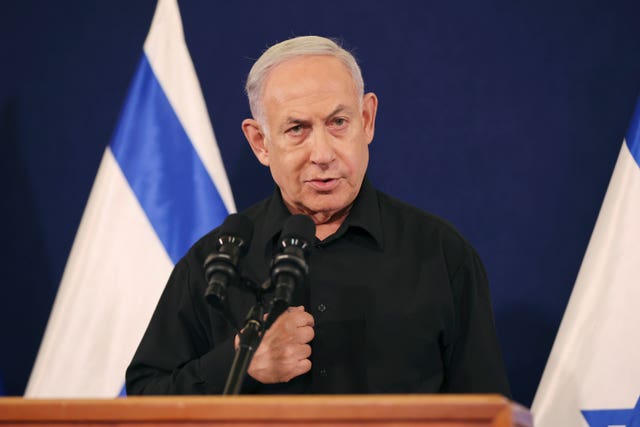Netanyahu to dispatch negotiators to resume ceasefire talks, official says
Diplomatic efforts aimed at ending the nine-month war in Gaza appear to be stirring back to life.

An Israeli official says Prime Minister Benjamin Netanyahu will dispatch negotiators to resume Gaza ceasefire talks.
Diplomatic efforts aimed at ending the nine-month war in Gaza appear to be stirring back to life after a weeks-long hiatus.
A senior Biden administration official said the White House viewed the resumption of negotiations as a “breakthrough” that “moves the process forward” while cautioning that there is still much work to do.
Mr Netanyahu spoke earlier on Thursday with President Joe Biden.
Mr Netanyahu’s office said he told Mr Biden that Israel is committed “to finish the war only after achieving all of its objectives” — a reference to the twin war goals of rescuing hostages and destroying Hamas.
During the 30-minute call, Mr Biden made clear to Mr Netanyahu that “it’s time to bring the deal to closure”, said the administration official.

But until now, neither side appears to have fully embraced it.
Hamas suggested “amendments” to the proposal last month, some of which the US said were unworkable, without providing specifics and talks ground to a halt.
After the US put forward a new version, Hamas said on Wednesday that it send a new response to Egypt and Qatar.
Hamas political official Bassem Naim said the group “responded with some ideas to bridge the gap” between the two sides, without elaborating.
A US official called the response constructive but said more work needed to be done.
For his part, Mr Netanyahu has given conflicting stances — he has said Israel is committed to the proposal outlined by Mr Biden in a speech on May 31. But in a TV interview last month, he said he was only prepared to make a “partial deal”, and would continue the war “after a pause”.

The first phase calls for a ceasefire, a withdrawal of Israeli forces from all densely populated areas of Gaza and the release of a number of hostages, including women, older people and the wounded, in exchange for the release of hundreds of Palestinian prisoners.
The proposal called for the parties to negotiate the terms of the second phase during the 42 days of phase one.
Under the current proposal, the negotiations are meant to lead to a “sustainable calm” and the withdrawal of all Israeli troops from Gaza – with the release of all remaining men, both civilians and soldiers, held captive by Hamas in return for an Israeli release of Palestinian prisoners.
The third phase would see the return of the remains of hostages.

Hamas is concerned that Israel will restart the war after the first phase, perhaps after making unrealistic demands in the talks.
Israeli officials have said they want the negotiations to lead to Hamas’ removal from power in Gaza — a provision not spelled out in the proposal.
They have also pushed for a time limit on negotiations to keep pressure on Hamas and prevent it from drawing out talks and the initial ceasefire.

The war began when Hamas-led militants launched a surprise attack on October 7 into southern Israel, attacking multiple army bases and farming communities and killing around 1,200 people, mostly civilians.
They abducted another 250 people, more than 100 of whom were released during a weeklong ceasefire in November. Militants are still holding around 80 hostages and the remains of 40 others.
In its campaign in Gaza since the attack, Israel has killed more than 38,000 Palestinians, according to health officials in Gaza, who don’t say how many were civilians or militants.
Israel’s bombardment, ground offensives and restrictions on Gaza have caused vast destruction across the territory, displaced most of its population of 2.3 million — often multiple times — and caused widespread hunger, raising fears of famine.





